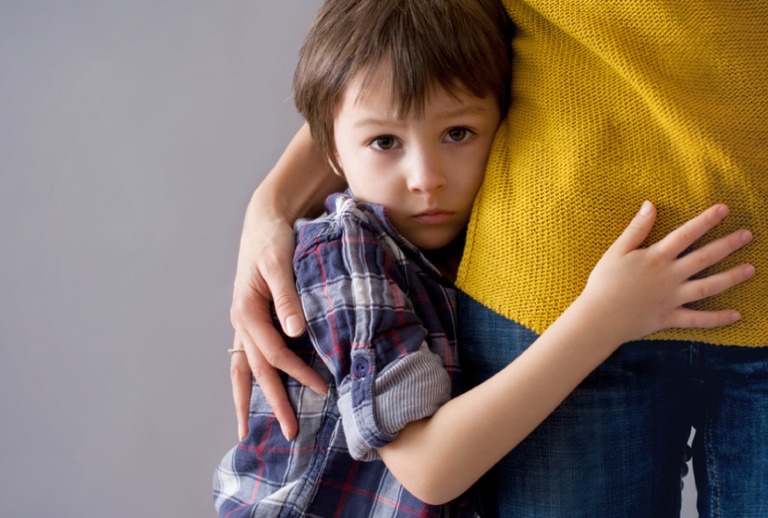Adults often attribute children’s shyness and hesitation to socialize with strangers to their young age, sensitive emotions, or introverted nature. However, the following reasons may make parents reconsider that view.
Parents’ nagging
Parents often repetitively remind the same thing, which can inadvertently cause a disruptive reaction in children, making them resist the “aggressiveness” in adults’ speech.
For example, during visits, although initially children may actively greet others, parents’ excessive urging can make children feel uncomfortable. The more they are reminded, the more stubborn and reluctant they become to greet.
To prevent this situation, parents need to respect children’s communication autonomy, allowing them to voluntarily greet without coercion. In cases where children do not understand basic communication skills, parents can gently guide instead of constantly nagging without achieving any results.

Shy children can be due to parents’ nagging
Parents’ lack of role modeling
Children often learn from what they observe in their parents’ daily lives, including communication and greetings with others.
If parents themselves are not exemplary in this regard, avoiding greetings with neighbors or acquaintances, children will perceive that greetings are not important and imitate accordingly.
Before parents start educating their children about specific behaviors, they need to reflect on whether they themselves have similar issues. Parents’ role modeling greatly influences children’s learning, and if parents cannot set an example, children will also find it difficult to follow.
Parents’ failure to build children’s communication skills

Parents need to build children’s communication skills
Some children show hesitation and lack of interest in communication, not knowing how to greet when meeting others. This is mostly due to a lack of opportunities to practice this skill. Difficulties in finding conversation topics and determining appropriate terms of address can make children feel anxious and isolate themselves.
Parents play an important role in addressing this issue by providing guidance and creating practical communication opportunities for their children. When children are equipped with basic knowledge of communication and addressing, they will become more confident and gradually open up and be friendly in the social environment surrounding them.
Parents labeling their children
Instead of recognizing that their children need more time to adapt to communication, some parents hastily evaluate their children as poor communicators or too introverted when they do not greet immediately. Over time, this can make children withdraw further and limit their interaction with others.
Parents should avoid labeling their children hastily and instead show respect and understanding for each child’s individual personality. In addition, finding supportive methods and encouraging step by step will help children overcome their shyness. Parent’s patience and trust are important factors in helping children become more open in communication.

Parents should avoid hastily labeling their children
Parents allowing children to live in a monotonous environment
Children living in a quiet and unstimulating environment can develop hesitation and reluctance in communication. This deficiency not only limits their ability to get acquainted with new people but also affects their flexible development when facing unexpected situations.
If this persists, children may become even more closed and have difficulty adapting to new circumstances, feeling insecure and fearful when meeting strangers.
Therefore, parents need to actively involve children in social activities, such as playing in the park or joining playgroups, to broaden their life experiences and improve their communication skills. This is an important step to help children become more flexible and confident in unfamiliar environments.
In conclusion, communication issues in children often reflect the educational approach at home. Instead of defending that their children are naturally introverted, parents need to reflect and improve their own educational approach to support children in opening up to the world and developing strong communication skills.



































